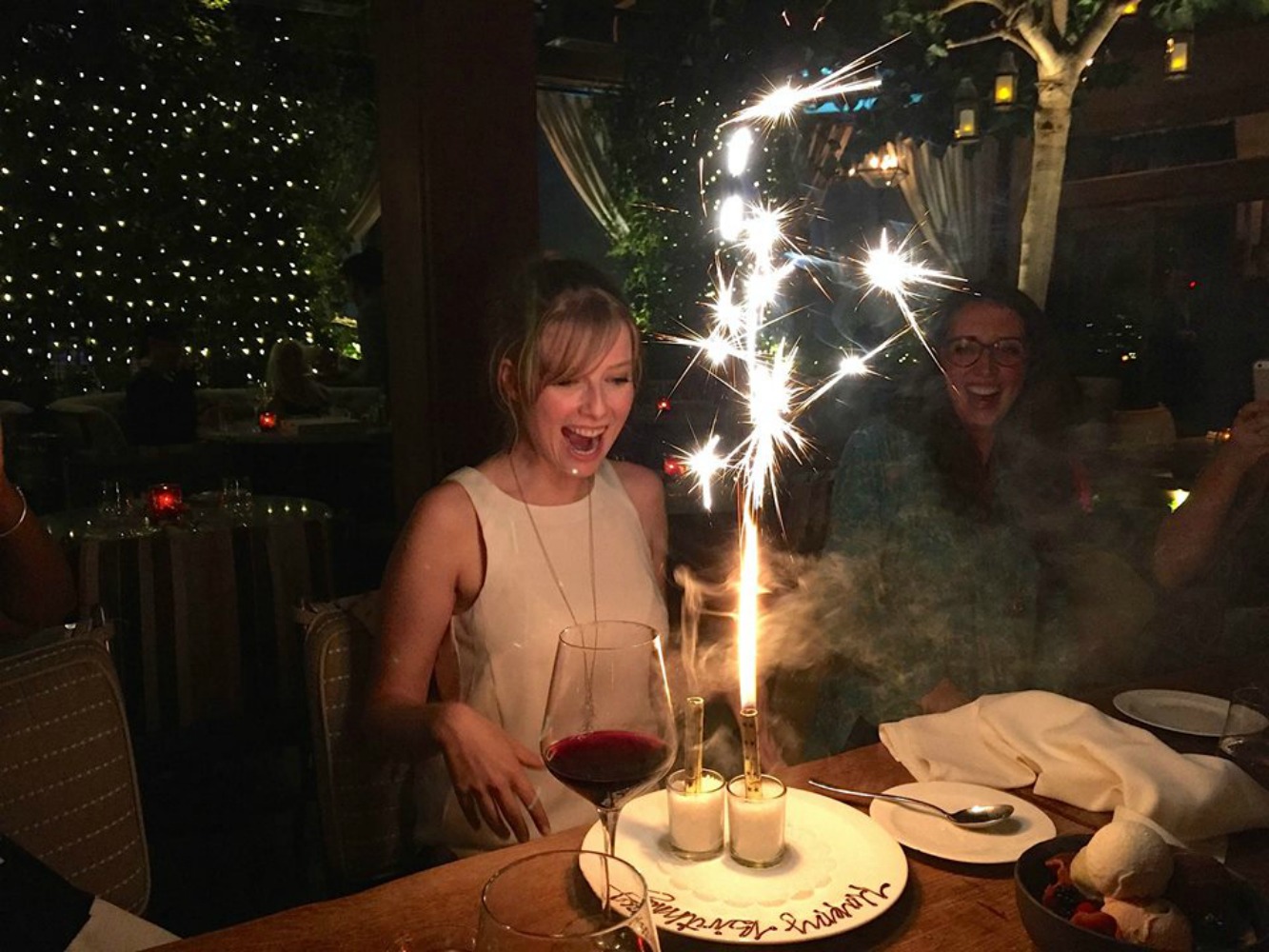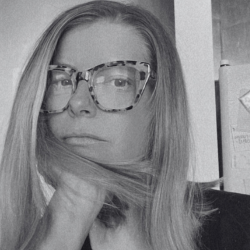Eating in LA

It’s a simple question but it sends my mind spinning and tripping into well-worn grooves. Like I’d have to write a memoir of the past five years (ten if I’m not lying, but I always lie about how long I’ve lived here). But for the sake of food I’ll tell the truth. Here it is, my life in LA, ten years of eating:
Year One:
Apple Pan, because it’s literally what the Peach Pit in 90210 is based on, and pie is good when you’re being rejected that much. Also because it was what you wanted LA to be: easy, nostalgic, and like a scene from 90210. The Ivy, because, well, it wasn’t that douchey back then. And it was easy to spot Ian Ziering. Wait, maybe you were more douchey back then.
Year Two:
Chopped salads, mostly at Jones on Santa Monica. Also good booze at Formosa, across the street. You end up turning a lot of your twenties in Jones. Because one day you were on your way to see a play on Santa Monica and you stopped in and the bartender comped you a chopped salad. You were too young to realize that when you’re that young, dudes give you things for free all the time.
Year Three:
Settle in, pay off most of the parking tickets, develop rosacea, and discover a great bowl of Bolognese at Amici’s. You realize being able to succeed in a city depends on knowing where to get a great bowl of pasta and a glass of Malbec on a rainy Sunday night.
Year Four:
Realize you don’t have to pretend you don’t have edge, this isn’t the 90s. Hang out in downtown LA, splurge at Church and State with your favourite writer friend. You both wear Converse and pay with a combination of four credit cards.
Year Five:
Write a play. Yes, you should definitely write a play. This is Los Angeles, where everyone will be super responsive to your weird musings on Chagall, love, and modern-day terrorism. Which means a lot of time at Bourgeois Pig. All writers spend at least two dark years in that cave, before being staffed on a TV show. When you get to Bourgeois Pig you have to line up for hours to get a lukewarm cup of coffee but you really feel like you are waiting in line to gain admittance to your career. Once you get your coffee, you and your laptop cram into a shared table where everyone’s ambition, desire, and desperation mingle and create a peculiar stench. It is where you finally laid your twenties to rest. When you needed pie (see Year One), it was fast and easy to get over to Café 101. Also bottomless coffee. And great service. (At Café 101.)

At a friend’s wedding
Year Six:
Realize that a lot of where you’re eating is based on how rich the guy you’re dating is. (At this point in writing this list I am very aware of how patriarchal that sounds. But I am genuinely trying to tell you where to eat in LA, and where you eat will be connected with who you’re sleeping with. It always is. How can you separate food from love or love from food?) That was a year of refined Silverlakean bliss. Steaks at Blair’s, casual dinners at Stella. And, yes, my favorite home of pie, and where I believe God lives: Brite Spot. As you can see, I switched boyfriends towards the end of the sentence, and I’m fine with it.
Your friends back in Toronto, the cool ones, think you’re basically throwing your life away to play a kidnapped girl who gets thrown into a trunk in an episode of CSI. No one talks about how hard it actually is to get cast as a dead girl in a trunk on CSI. Everyone you talk to here wants to know how old you are. But you have been schooled by actresses in Toronto and Montreal to never ever reveal your age once you’re in LA. A talent manager says to you, “The thing that’s so marketable about you is guys want to fuck you but it’s not like you’re so fuckable that girls don’t want to be your friend. You are the exact right balance of fuckable.” Cool! (If you are a female in the entertainment industry it is very important to be relatable.) Except making female friends isn’t that easy out here. And if you don’t already have a failed eating disorder now is the time to pick one up. What else could make you more relatable to other women? Somehow being cast as a dead woman in a trunk of a car is starting to feel less metaphorical. More… relatable.
Year Seven:
You may be having a bit of a nervous breakdown. The things that were supposed to happen before you turn thirty are not happening. That list includes convincing someone to cast you in the role of wife both in real life and (preferably) on network television, changing how women are seen in the entertainment industry, and having a baby.
Instead, a week before your thirtieth birthday, you have awkward sex after eating at the Cheesecake Factory and three days later have your ovaries scraped clean of cysts. The cysts want to become cancer, your doctor has told you. It is hard to walk. It is hard to eat. “Let’s leave this off your medical records for insurance purposes,” the doctor says, so you leave the whole surgery off the record. You are turning into someone who is being asked to keep a lot of things off the record. You leave the four weeks of not being able to walk off the record. You are supposed to be very gluten free right now. Mostly you are eating sandwiches from Bay Cities in Santa Monica, because they are the best, even though you have to wait in line with a bunch of people who are very obviously in Year Two.

At Pace, the home of the magical flourless chocolate cake
Year Eight:
Single, your doctor prescribes you a dog and an anti-depressant. You get a dog and name her Lexapro and you discover Pace. More importantly, you discover the flourless chocolate cake at Pace. You discover that there is a man in LA who knows exactly what you want in your mouth. He’s the chef at Pace. Something about the temperature of that cake makes you return to mental health. Food is love. We can use it as a weapon to heal ourselves. We can apply it to our souls and grow strong again. You go off the anti-depressants. Now that you have the cake at Pace, it seems redundant.
Year Nine:
You meet a guy. He cooks. These are very good meals.
Year Ten:
There’s the coffee at La Brea Bakery, there’s Jinya ramen noodles, and there’s wonderful seafood at the Hungry Cat. On a sleepy Tuesday evening you go out for passable sushi with a new friend, who’s ten years younger than you. She asks you how long you’ve been here. You tell her the truth. It sounds strange. You’re worried she’ll judge you for not having obtained all the things she wants (see Year Seven) but you tell her anyway. And she doesn’t judge, or even want the same things you wanted at ![]() (age redacted).
(age redacted).

“I’m not a big fan of the D,” she confides. Which is how a millenial tells you she’s a lesbian. And how you realize you are now old. Old-er. Old? Also when you tell her about your issues with rage, she nods her head and very generously says thanks for speaking about #rage. (She says the word “hashtag” out loud, another thing it seems important to do in an attempt to remain on the right side of fuckable. I mean relatable.) You know. We all have it. She mentions something about perspective. What it means to be a bit more open about what we want and who we are. It’s taking forever for the cheque to come, so I tell her how old I am. The real number. I break the golden rule. It feels strange. And powerful. And earned. It feels like the way the city wants to be when it’s not being looked at.










Comments